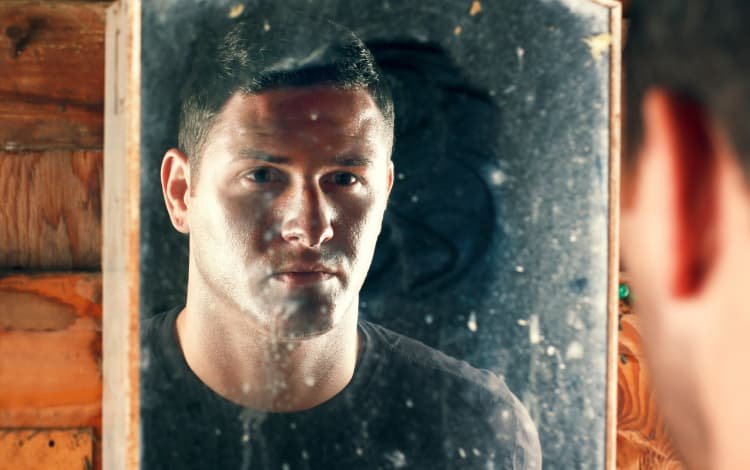Are You in a Toxic Gay Relationship? A Therapist's Perspective
Why Intelligent, Successful Gay Men Stay Trapped in Toxic Relationships That Drain Their Souls
I remember the day a successful executive began his session with me, twisted his watch band, and posed a question I've heard many times: "Am I crazy for feeling this way?"
He described a relationship that looked perfect on Instagram but felt suffocating in real life. His partner was successful, attractive, and well-liked in their social circle. Yet something felt deeply wrong.
After working with over 500 gay men in my online therapy practice, I've uncovered a disturbing pattern in toxic gay relationships: The more accomplished my clients are in their professional lives, the harder they struggle to recognize relationship toxicity and the longer they stay trapped in dynamics that slowly erode their sense of self.
Why is this?
Let’s start with what most relationship advice gets wrong about toxic gay relationships: The problem isn't that gay men can't spot red flags. It's that we've been conditioned to ignore them.
The Hidden Pain of Toxic Gay Relationships
In my decade-plus of specialized work with gay men, I've observed three critical reasons why even the most insightful among us overlook the signs of relationship toxicity:
The Excellence Trap
Many of my highest-achieving clients excel at solving complex problems in their professional lives. However, this same skill becomes a liability in relationships, where they treat toxic patterns like challenges to overcome rather than warnings to heed. "If I can turn around a failing company," one client told me, "surely I can fix this relationship."
The Scarcity Mindset
Despite dating apps and a seemingly connected community, many gay men operate from a deep-seated belief that their options are limited. This fear of scarcity makes it easier to justify staying in harmful situations. As one client put it: "There aren't that many gay men who understand my life. What if this is as good as it gets?"
The Validation Void
Without traditional relationship models to reference, many gay men lack confidence in their emotional instincts. This creates a dangerous tendency to seek external validation for internal warning signs. "All my friends think we're the perfect couple," a client once told me. "So why am I so unhappy?"
When Toxicity Echoes Gay Male Stereotypes
What I'm about to share might challenge everything you believe about toxic relationships.
After thousands of therapy hours, I've observed that the most dangerous forms of relationship toxicity among gay men rarely look like obvious abuse. Instead, they manifest in subtle ways that our community often values.
Let me clarify what I mean:
Many gay men in therapy believe they're "too sensitive" or "asking for too much." They're often in relationships that their friends envy – successful power couples who appear to have it all figured out.
Yet beneath that polished surface lies a pattern I've seen too many times to ignore.
The Three Toxic Patterns Unique to Gay Relationships
In many unhealthy relationships between gay men, three complex patterns of toxicity frequently appear, especially among those who are successful:
1. Achievement-Based Manipulation
Many high-achieving gay men often fall prey to partners who weaponize success. This isn't about obvious control – it's about subtle undermining masked as motivation. One client's partner constantly pushed him toward career advances, not out of support but as a way to maintain power through "helping." When my client wanted to take a less demanding job, his partner responded: "I just want you to reach your potential. Don't you want to make me proud?"
2. Social Capital Leverage
The interconnected nature of the gay community creates unique vulnerabilities in toxic relationships. I've watched countless clients stay in harmful dynamics because their social and professional networks were too intertwined to risk disruption. "If we break up, I'll lose half my friends," one client explained. "Our community is too small to start over."
3. Identity-Based Gaslighting
Perhaps the most insidious pattern I've observed in toxic gay relationships involves using someone's gay identity against them. "You're just not used to healthy gay relationships" becomes a powerful tool for dismissing valid concerns. One client described how his partner would say, "This is just how gay relationships work - you're bringing straight expectations into this," whenever he questioned controlling behaviors.
What Makes Toxicity in Gay Relationships Unique
The signs of toxicity in gay relationships often look different from what mainstream advice describes. I've identified four unique warning signs that are frequently overlooked:
1. Community Isolation Disguised as Couple Unity
Toxic partners often use phrases like "us against the world" or "we don't need the scene" to gradually separate you from LGBTQ+ community connections. While heterosexual relationships might draw support from various communities, the gay community often serves as both a social network and a chosen family. Isolation from this community is particularly harmful.
2. Historical Trauma Weaponization
In toxic gay relationships, shared experiences of discrimination or rejection can become manipulation tools. "No one else will understand what we've been through" becomes a reason to tolerate harmful behavior. One client's partner regularly reminded him how his family rejected him, subtly suggesting that only he could truly understand and accept himself.
3. Comparative Suffering Tactics
A uniquely toxic pattern involves partners who minimize relationship problems by comparing them to larger societal challenges: "With everything our community faces, you're complaining about how I speak to you?" This comparison makes it nearly impossible to address legitimate relationship concerns.
4. Status Compliance Pressure
The pressure to project the "perfect gay relationship" to both the straight and gay communities creates a powerful silencing mechanism. Many clients describe feeling unable to acknowledge relationship problems because they felt responsible for representing gay relationships positively to the world.
Why Traditional Relationship Advice Fails Gay Men in Unhealthy Relationships
In my experience, standard relationship guidance often does more harm than good for gay men. Here's why:
Most advice assumes a heteronormative context where (healthy or unhealthy) power dynamics are clearly defined. But in gay relationships, these dynamics are more complex. When both partners share similar trauma histories and societal pressures, the line between support and control becomes blurred.
I've seen this play out repeatedly with new clients in my practice. They recognize something that feels wrong but dismiss their instincts because "all gay relationships are complicated."
Additionally, standard advice about "reaching out" or "building a support network" misses crucial nuances of gay men's experiences. When your social circle, professional network, and dating pool overlap, conventional wisdom about "just leaving" becomes oversimplified.
The conventional wisdom about "healing and moving on" (or, per British stoicism, “a stiff upper lip”) doesn't account for the unique complexity of gay men's relationship patterns. Real change happens not through simple boundary-setting or self-care routines but through completely reimagining what relationships can be.
When gay men understand the deeper psychological architecture of their relationship patterns, everything changes. This includes not just their current situation but their entire approach to intimacy.
The Psychology of Perceived Scarcity in Toxic Gay Relationships
Revisiting a therapy intensive, I came across something that changed how I approach relationship trauma in gay men. Working with a group of successful clients, I noticed a striking pattern: Their relationship decisions weren't driven by low self-worth as commonly believed but by a sophisticated form of trauma response described as "preemptive settling."
Let me explain what I mean:
When you've spent years navigating a world that treats your love as conditional, you develop an unconscious belief that relationships operate on a scarcity model. This creates what I consider to be a unique psychological phenomenon in gay men:
The higher your achievements in other areas of life, the more likely you are to accept less in relationships.
Why? Because success creates a painful paradox:
External accomplishments amplify internal doubts
Professional confidence masks relationship insecurity
Social status increases the fear of being vulnerable
Achievement becomes a shield against intimacy
As both a gay man and a therapist, I've experienced and watched this pattern repeat itself with disturbing regularity.
The Achievement Paradox in Toxic Gay Relationships
Here's what I've learned about toxic relationships: The same drive that fuels professional success often perpetuates relationship toxicity.
Underpinning this drive is "Achievement-Attachment Disconnect" – a phenomenon where:
Success in a career becomes a substitute for emotional fulfillment
External validation masks internal disconnection
Relationship standards decrease as professional standards increase
Control is confused with care
This isn't about simple codependency. It's a sophisticated adaptation that requires equally sophisticated intervention.
The Reality That Nobody Discusses in Toxic Gay Relationships
Here's what most therapists won't tell you: The tools that made you successful in other areas of life are often the very things keeping you stuck in toxic relationships. This isn't about:
Learning to "trust your gut" (you already do in business)
Setting better boundaries (you're excellent at this professionally)
Building self-esteem (you've achieved remarkable things)
It's about understanding why highly competent gay men repeatedly find themselves in relationships that don't match their level of accomplishment in other areas.
Your Next Step Beyond Unhealthy Relationships
If you're resonating with these insights, you're likely experiencing what I call the "Success-Relationship Disconnect." This is where your relationship patterns don't match your level of achievement in other areas of life.
I work exclusively with gay men who are ready to understand why their relationship patterns don't align with their professional success. Through our work together, we address the complex psychological dynamics that generic relationship advice fails to capture.
My practice currently has limited openings for gay men who are:
Successful in their careers but struggling with repetitive toxic relationship patterns
Ready to understand the deeper psychology underlying their choices
Prepared to move beyond surface-level relationship advice
To explore working together, visit my website. Initial consultations are by application only to ensure we're the right fit for this deep transformational work.
Remember: Your success in other areas of life isn't accidental. Your relationships can reflect that same level of excellence – when you understand the real dynamics at play.










